Results
-
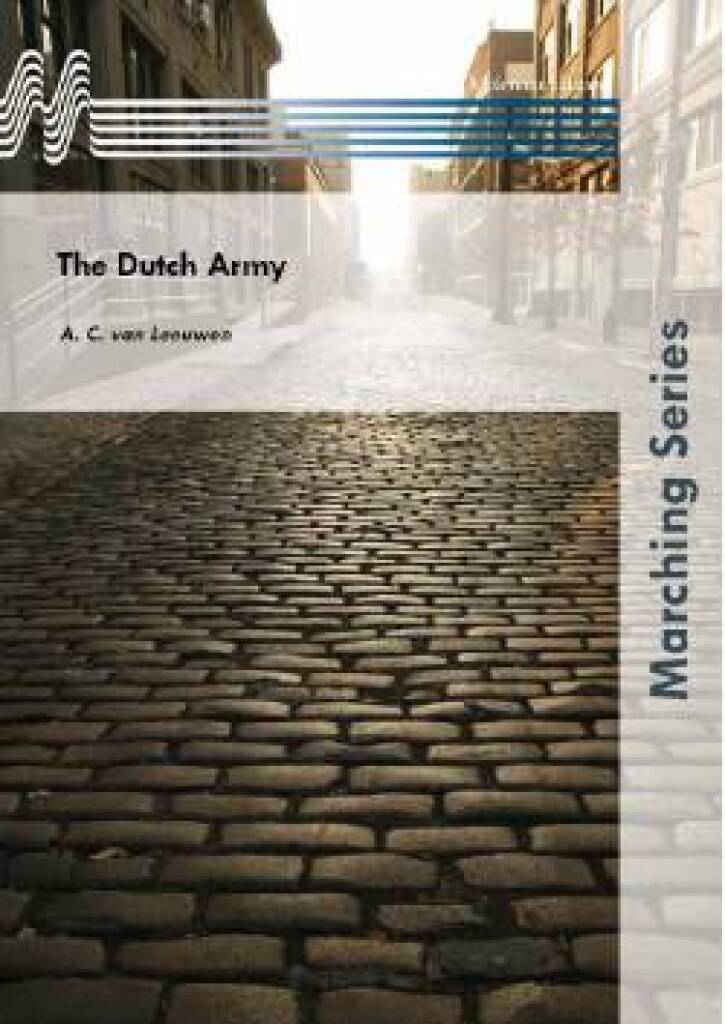 £38.20
£38.20 -
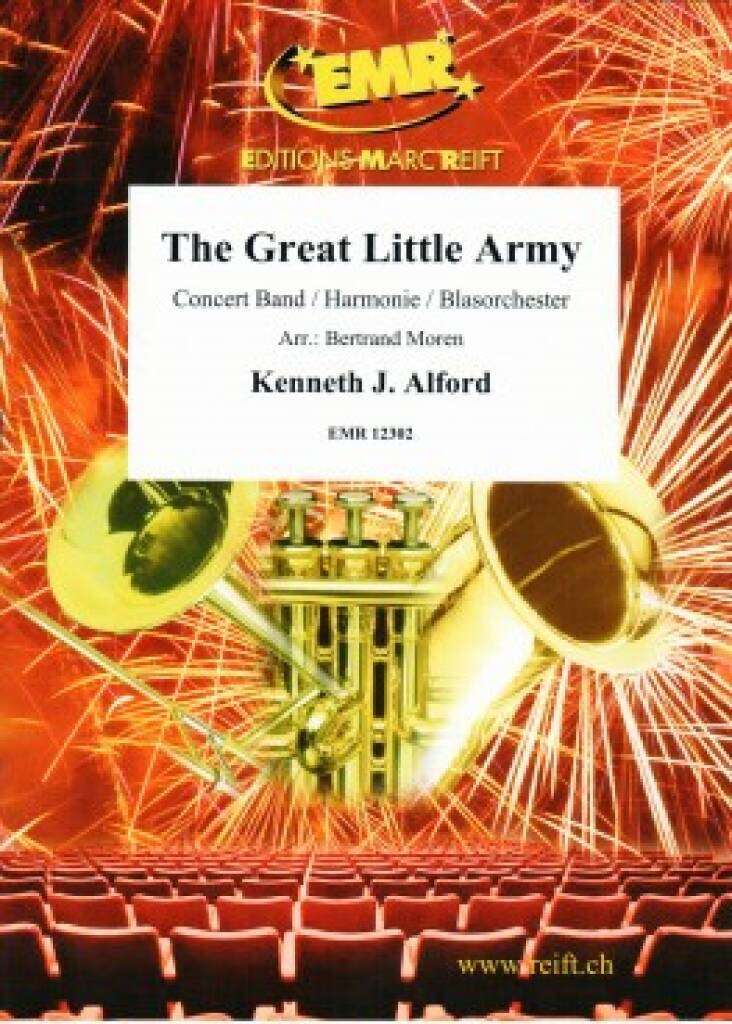 £87.40
£87.40The Great Little Army - Kenneth J. Alford
Estimated dispatch 7-14 working days
-
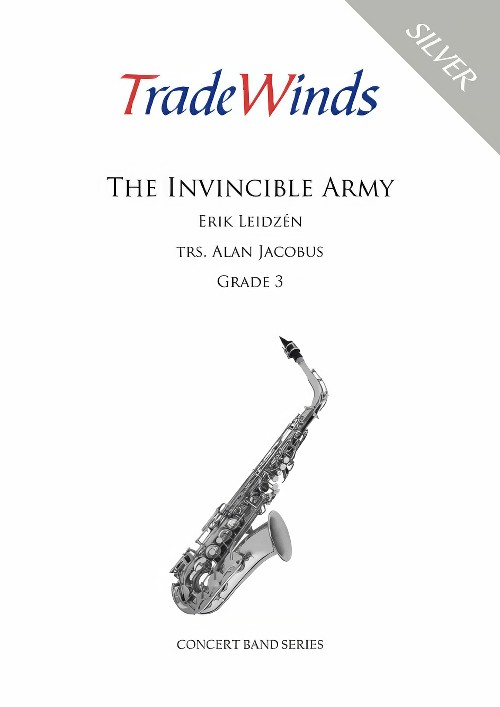 £39.95
£39.95The Invincible Army (Concert Band - Score and Parts) - Leidzen, Erik - Jacobus, Alan
Published in 1962 this is one of many fine marches composed by Erik Leidz?n. Full of interest and originality this march delves into keys not normally ventured in march writing which adds to the tonal colour of the march. A great opener or ending to a programme.
Estimated dispatch 7-14 working days
-
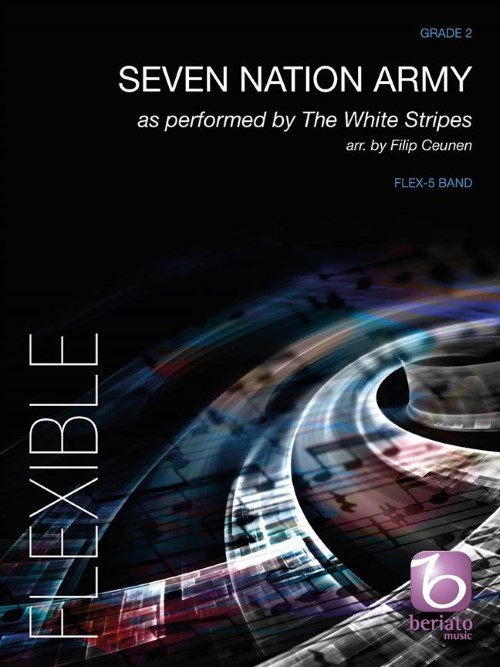 £69.99
£69.99Seven Nation Army (Flexible Ensemble - Score and Parts) - Ceunen, Filip
There aren't many football games without large crowds yelling this famous baseline. People could almost forget that it's a complete song by the American band 'The White Stripes'. This 5-voiced flexible band arrangement allows every band to play this joyful arrangement. Get your audience fired up!
Estimated dispatch 7-14 working days
-
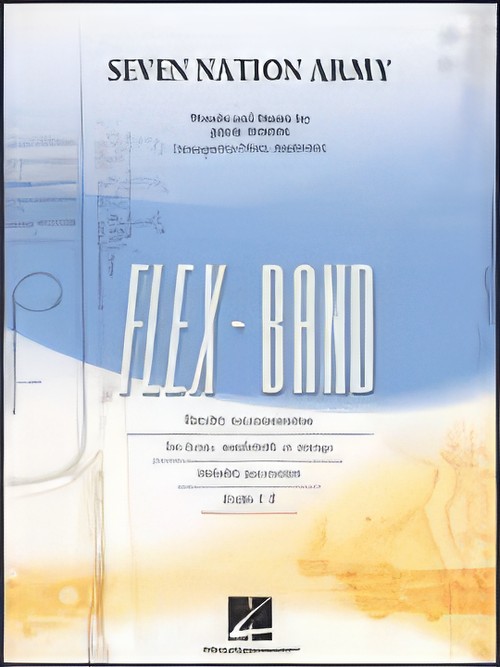 £64.99
£64.99Seven Nation Army (Flexible Ensemble - Score and Parts) - White, Jack - Murtha, Paul
Recorded by The White Stripes in 2003, this familiar rock hit has become a favourite at sporting events. Paul's energetic arrangement for flexible instrumentation features the signature bass line riff along with a hard-driving style throughout.
Estimated dispatch 7-14 working days
-
 £24.95
£24.95ARMY OF THE NILE (Military Band) - Alford, Kenneth J.
Marchcard-size. Quick March.
Estimated dispatch 7-14 working days
-
 £64.95
£64.95Fanfare and Soliloquy (Warner Chappell Army Journal Wind Band No.860) - Sharpe, Trevor Lee
Fanfare and Soliloquy is a work designed to show the contrasts of tone colour between brass and woodwind in the symphonic band. It opens with a rising declamatory section which precedes the initial statement of the brass theme. The final section is played Marcato with the last three bars being slow and pronounced.
Estimated dispatch 7-14 working days
-
 £64.95
£64.95The Caliph of Baghdad, Overture (Warner Chappell Army Journal Wind Band No.650) - Duthoit, W. J.
Overture to the Opera by the French composer Fran?ois-Adrien Boieldieu with a libretto by Claude Godard d'Aucourt de Saint-Just.
Estimated dispatch 7-14 working days
-
£184.99
Rubicon - Bert Appermont
The Rubicon is a river in Northern Italy which Julius Caesar crossed with his army in 49 BC in defiance of the leaders of Rome, who feared his power. A civil war against rival Pompey ensued, which culminated in Caesar seizing power as the absoluteruler of Rome. The phrase "crossing the Rubicon" therefore refers to any person committing himself irrevocably to a risky, decisive and irrevocable of course of action.The work consists of three parts that deal with this important moment in history.Part 1 (Meditation) symbolises Caesars request to the Gods to assist him in his difficult choice. In a slow introduction we hear the melancholy and beseeching sounds of the duduk (alternatively, this part can be played by a soprano saxophone)and of the soprano solo singer over the bourdon accompaniment. The soprano solo singer then sings "dona tibi pacem" (give him rest) in a melodious and probing theme.In Part 2 (Battle of Pharsalus) trumpets and trombones resound alternately ina stately Roman fanfare, producing a stereophonic effect. This develops into a martial theme in which Caesars impressive army goes to battle against the army of rival Pompey. While the theme of Caesars army fades away, Pompeys theme emerges as anaive dance in six-eight time. His army is definitely in the majority and it believes it can easily defeat the enemy. Suddenly trumpets and trombones clash on two sides of the orchestra: Caesars army advances and attacks. A fierce battle ensues inwhich the two themes are played alternately as well as simultaneously. Thanks to his shrewd battle tactics, Caesar manages to win this legendary battle after all: his theme resounds ever louder in trumpets and horns until everything dies out andchanges into a kind of reconciliation between the soldiers of the two armies. The melancholy "dona tibi pacem" from part 1 now serves as a reconciliation theme.Caesar is now the sole ruler of the New Roman Empire, which would be destined to leave itsmark on our Western civilisation to this day. The third part is a sparkling succession of dance music (Dance) with many Greek and Roman elements in which Caesars victory is praised and celebrated. It is common knowledge that the culture(arts, gods, etc.) of the Romans drew heavily on Greek culture. I have therefore used an authentic Greek theme (the Seikolos song) several times in this part (bar 17 in the euphonium, bar 60 in the base section, bar 68 in the sopranosaxophone) to suggest the music of that era and to evoke the right atmosphere. After a gradual increase in tempo in the entire orchestra, the opening melody gloriously resounds once more, surrounded by virtuoso dance music. The work ends withbombastic brass fanfares in which Caesars theme triumphs once more.NOTE FOR THE CONDUCTOR:The Armenian duduk and the monochord that are used in the introduction give a special tone to the music, but could be substituted (soprano saxophone instead ofthe duduk) or left out (monochord). The soprano solo is also doubled within the orchestra and could therefore also be left out if necessary, although it does provide the work with an extra dimension. The male voices in the introduction and the finalecould possibly be replaced with a synthesizer with choral setting.As a visual and acoustic element in part 2, the trumpets, the e-flat cornet, the small drum and trombones can be stood up and placed at two sides of the orchestra (bar 80).Seen fromthe point of view of the conductor, put the trumpets, the e-flat cornet and the small drum in the left section and the trombones in the right section of the orchestra. This also helps to create a visual contrast between the two themes of the secondpart. The players can be seated again at bar 97 or bar 121. The soprano soloist can be placed in or in front of the orchestra, depending on what gives the best result. For the conclusion of the work the soprano solo can be sung from afar (from thewings) to create additional atmosphere.This work was composed especially for the "St Joseph" brass band from Pey/Echt (Belgium) with conductor Mark Prils.
Estimated dispatch 7-14 working days
-
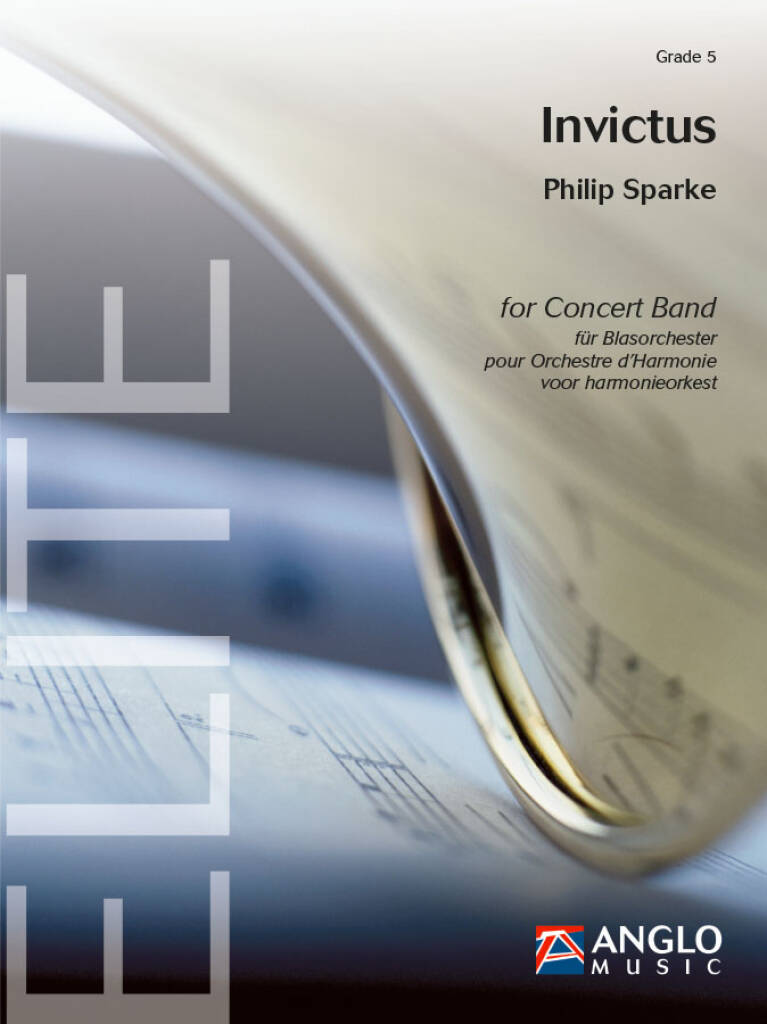 £164.99
£164.99Invictus - Philip Sparke
Invictus was commissioned by the United States Army Ground Forces Bands commander and conductor, Major Otis C. French, and is dedicated to various units of the Forces Command, including the Active Army, Army National Guard, Army Reserve, Combat Forces, Combat Support Forces, Combat Service Support Forces and the Civilian Forces. This work is passionate, powerful and turbulent with a real victorious feel!
Estimated dispatch 7-14 working days
